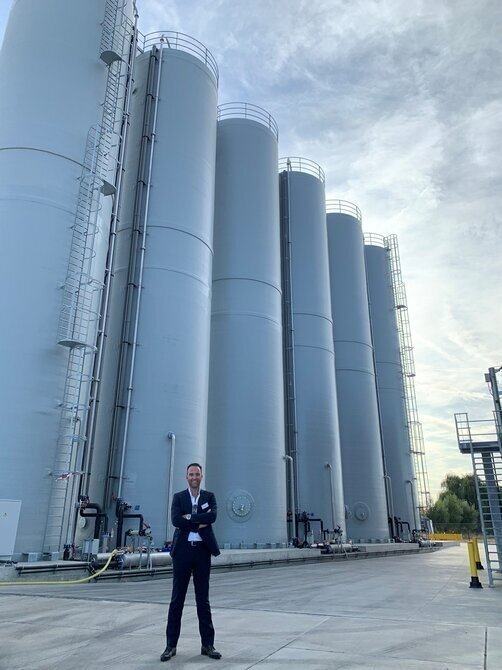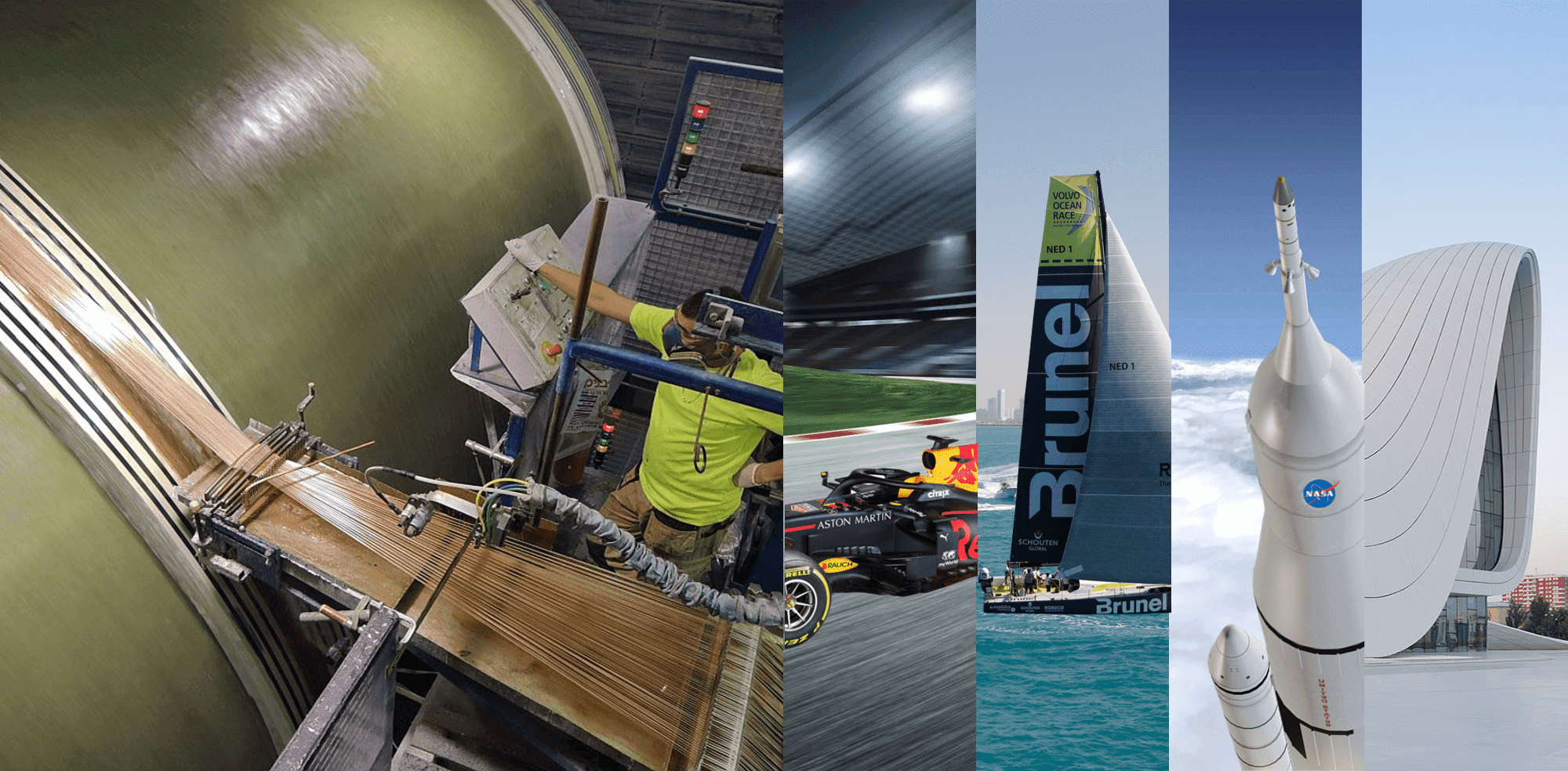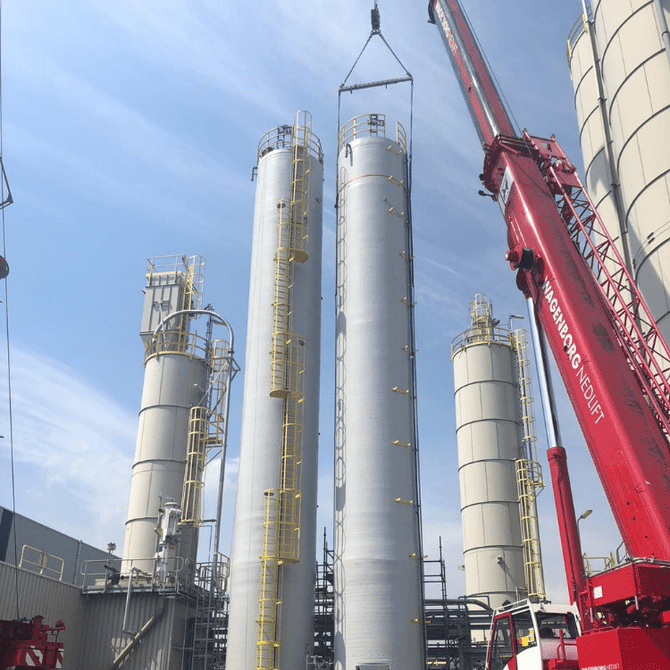A steel or stainless steel installation is the standard at many companies for the storage of liquids and/or solid raw materials. Logical, because (stainless) steel is a very strong material and suitable for almost every industry in different versions. Stainless steel/steel tanks also have a robust appearance.
However, they also have many drawbacks. For example, (stainless) steel installations are relatively expensive. Because the material is strong and tough, there are often high processing costs. With stainless steel, the corrosion stops because it cannot penetrate deeper into the material, but with steel, the corrosion layer is not oxygen-tight and this layer does not stop further corrosion. In addition, steel structures require regular maintenance, have a low fire safety and poorer sound and heat insulation.
Do you have a stainless steel or steel installation? And does it need to be replaced? We would like to introduce you to composite: the material of the future. We hope that after reading this article you will consider composite as a material for your new installation.






